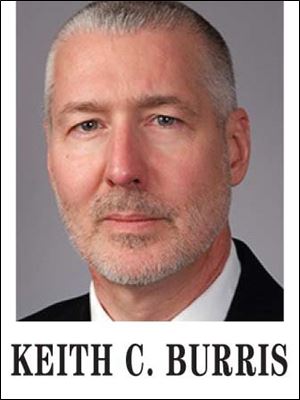
COMMENTARY
Housing: when small steps are not sufficient
3/28/2014
It is said that the perfect is the enemy of the good.
We can be blinded by the ideal, the optimal outcome. This can cause us to reject, or simply ignore, the more modest, incremental small step forward.
A classic example was when Congressional Democrats rejected Richard Nixon’s health care reform proposal (very similar to Obamacare) because it wasn’t enough. They wanted a fully socialized medical system.
But I wonder if we often make the opposite mistake — we settle for the familiar compromise, half a loaf, when we should start from scratch and seek the big change. It is sometimes worth reminding ourselves of the ideal. The good should not be the enemy of the better.
An example: public housing policy.
I got a lot of reaction to a recent column deploring failed housing projects and policies in Toledo, specifically ONYX. And, more generally, homes that were built poorly and sold at many thousands under cost of construction. Some of these houses are being torn down just a few years after being built.
The gist of the message from many who reacted to that criticism was: Hey, some good houses got built too. Moreover, through the years, we have learned and gotten better at this.
Fair enough.
I am not against subsidized public housing. I’m not necessarily against tax credits to accomplish this. I know the private market won’t provide all the housing needed for poor people.
But almost everyone agrees we need to build and subsidize smarter. Yet, we’re not really talking about how to do that.
Former City Councilman Adam Martinez set me up a few days ago with Bill Farnsel of NeighborWorks.
Mr. Farnsel, a knowledgeable and affable man, is an old pro. His outfit is now building really fine small homes, mostly under the supervision of master builder, and visionary, Stu Cline. NeighborWorks is active in North, South, and East Toledo. Their new homes have structural and design integrity. They are not “plastic houses.” And NeighborWorks is finding buyers and helping them learn the skills of home owning. They use tax credits to do some of this. Mr. Farnsel freely admits to past mistakes and the need to “move on to new mistakes.” He’s one of the good guys. United North does similar good work.
But I still wonder if our approach to housing doesn’t need a radical reboot — something like the Community Pride initiative that came out of Geoffrey Canada’s Harlem Children’s Zone in New York City. This approach is neighborhood-based and it comes from tenants and residents, not from people who will save them from the outside.
I’m not saying there is a panacea or new magic formula. But we are still building homes we sell for thousands less than cost on streets, and in neighborhoods, that are not going to be turned around by one or two good houses.
This is not to say we should ignore the good work Neighbor-Works and United North do; we just need the ideal as well as the incremental; the big picture as well as the small; a way to save streets and neighborhoods as well as individual houses.
Keith C. Burris is a columnist for The Blade.
Contact him at: kburris@theblade.com or 419-724-6266.